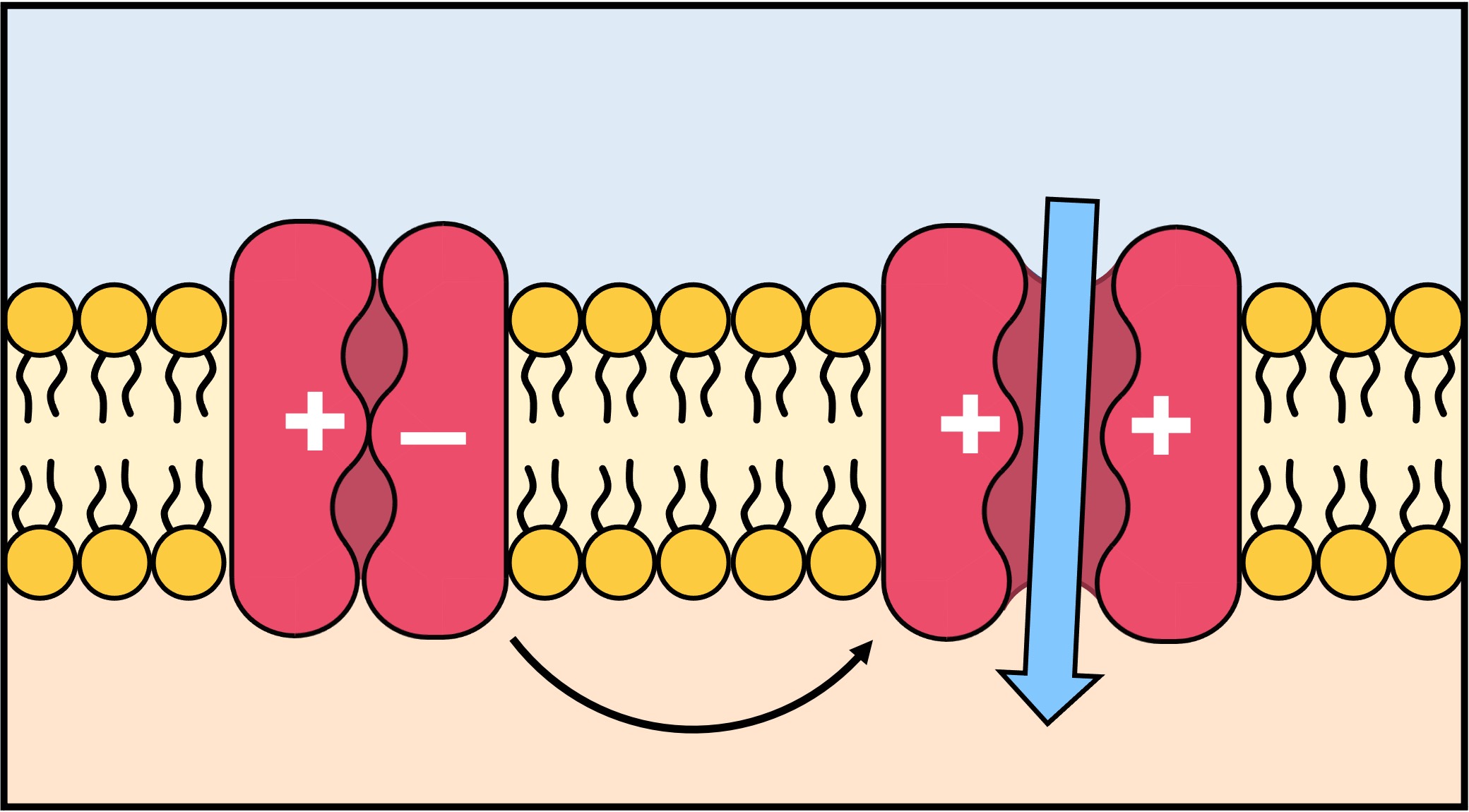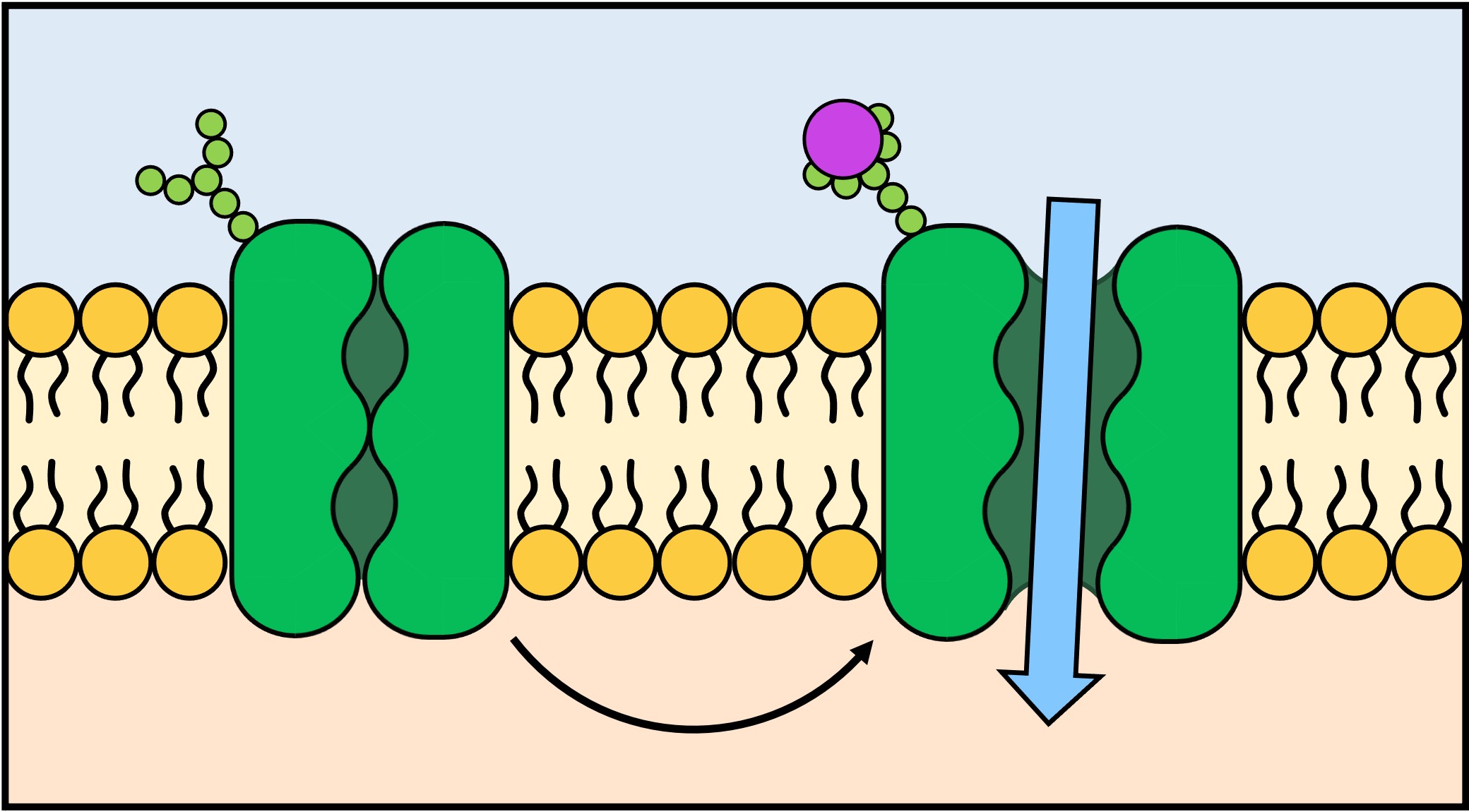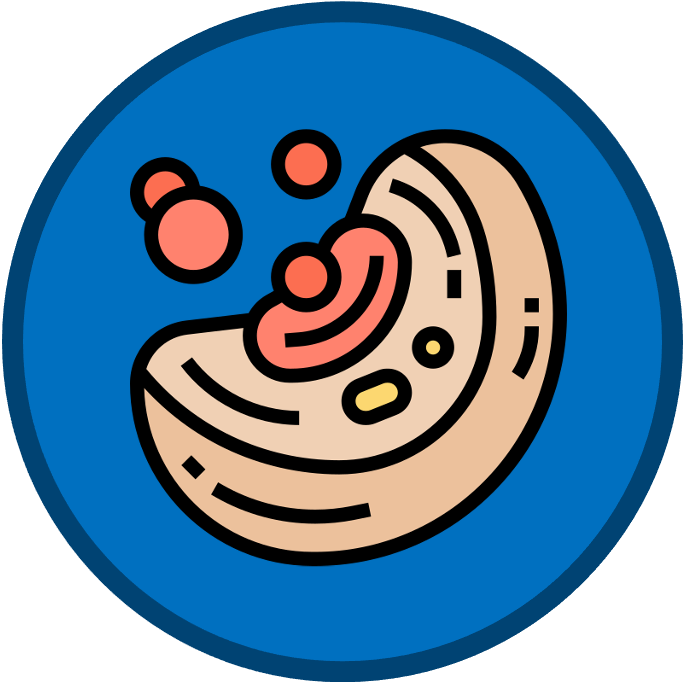

Ion Channels
Ion channels are integral membrane proteins which contain a hydrophilic inner pore through which ions may pass
-
This allows ions to either enter or exit a cell according to the concentration gradient (facilitated diffusion)
The channel proteins may be ion-selective (only allows passage to specific ions) and may be gated (can control the timing of ion movement)
-
Ion channels are essential to the operation of nerve cells as they are used to establish charge differentials across a membrane (membrane potentials)
Voltage-gated Ion Channels:
-
Voltage-gated ion channels cycle between an open and closed conformation according to the transmembrane voltage
-
In neurons, voltage-gated sodium channels are used to transport sodium ions into the neuron during depolarisation
-
Conversely, voltage-gated potassium channels will transport potassium ions out of the neuron during repolarisation
Ligand-gated Ion Channels:
-
Ligand-gated channels change their conformation in response to the binding of a specific chemical (ligand)
-
In neurons, acetylcholine is a neurotransmitter released from the nerve cells to stimulate adjacent cells
-
Muscles contain nicotinic acetylcholine receptors that will trigger the opening of an ion channel when activated
-
Binding of acetylcholine to these receptors results in the influx of ions into the muscle, triggering a cascade that results in muscular contraction
Types of Ion Channels

Voltage-Gated





